Monthly Journal
February 2025
International Press Review
The most relevant events of the area through international sources

US sanctions against Serbo-Russian energy giant NIS postponed for 30 days
Anadolu
The new Trump administration postponed sanctions on Serbia’s oil and gas sector for 30 days, Serbian President Aleksandar Vucic announced just before the deadline of the sanctions. He shared an official document confirming the delay of punitive measures against Serbia’s Petroleum Industry (NIS), majority-owned by Russia’s Gazprom Neft, until 28 March. Initially set for 27 February, the sanctions aimed to curb Russia’s energy revenues. The US Treasury sanctioned Gazprom Neft and subsidiaries, including NIS, aligning with previous G7 commitments.
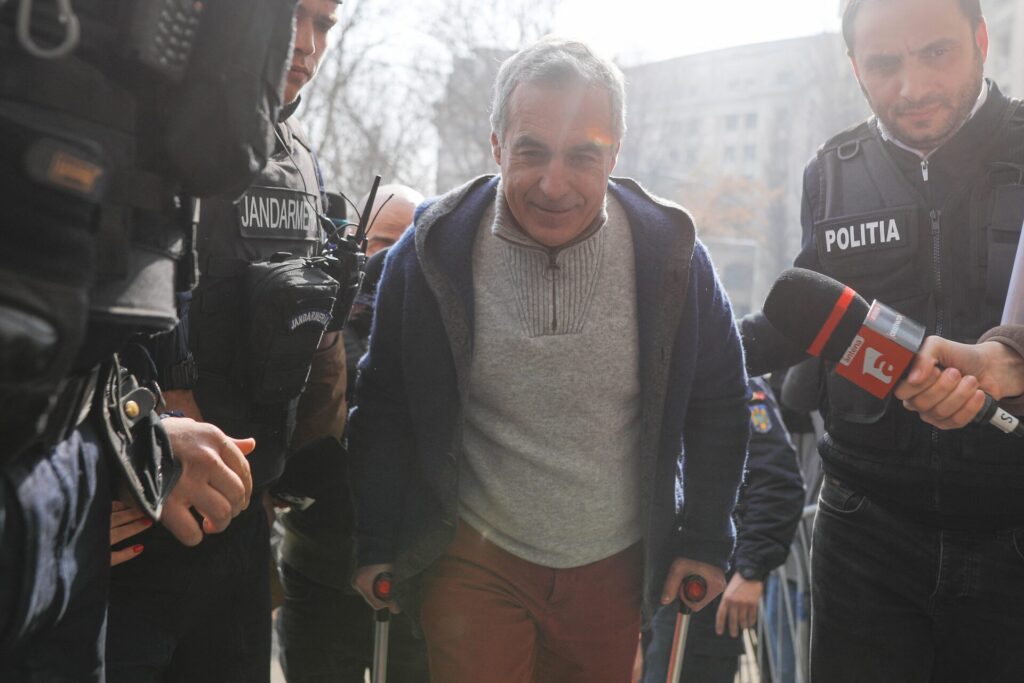
Romanian pro-Russian presidential candidate under investigation
Reuters
Romanian prosecutors launched a criminal investigation against Calin Georgescu, the far-right frontrunner in last year’s cancelled presidential election. The election was annulled in December due to suspected Russian interference on Georgescu’s behalf. Prosecutors are investigating accusations of campaign funding fraud, antisemitism, hate speech, and actions against the constitutional order. Georgescu denied the charges, accusing authorities of communist-style tactics to block his new candidacy at the presidential elections to be held again in May 2025. Meanwhile, Romanian authorities are facing US pressure to greenlight Georgescu’s presidential bid, despite his anti-NATO and anti-EU stances and praises for Putin. The candidate was barred.
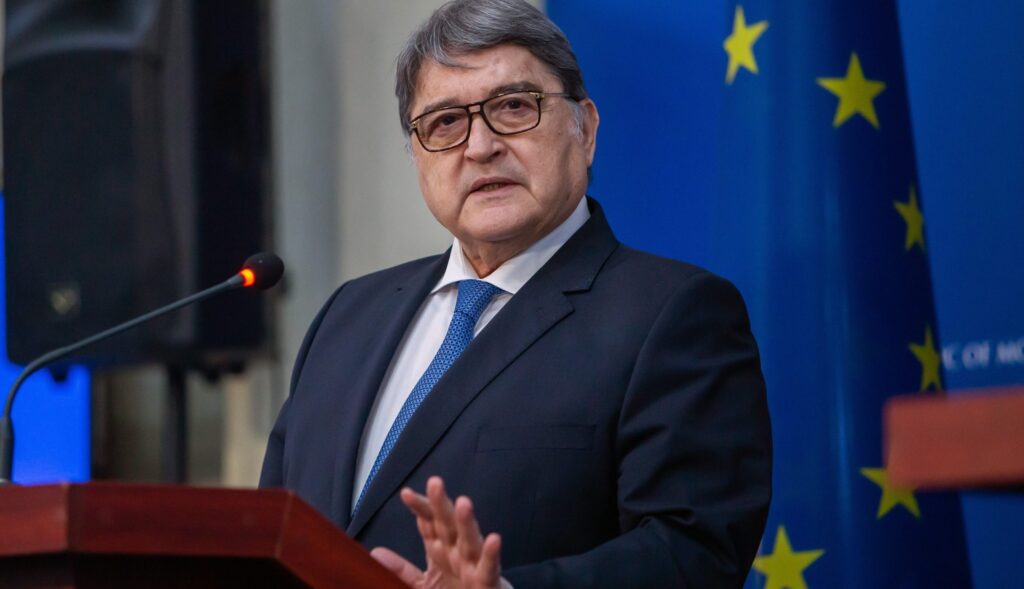
Bucharest accuses Musk of interfering in the elections
Euractiv
Romanian Foreign Minister Emil Hurezeanu stated that Elon Musk’s social media support for extremist right-wing politician Calin Georgescu constituted interference in Romania’s elections. He noted that while Musk was influential and close to Donald Trump, he held no official US position. Georgescu, preparing to run in the May presidential elections, held a rally with 5.000 attendees in February and later claimed to have gathered the 200.000 signatures needed for his candidacy.

Serbia investigates four NGOs funded by USAID
Le Monde
The Trump administration’s freeze on US international aid and attacks on USAID is benefiting authoritarian powers, the French daily Le Monde said. As a proof, Le Monde reported that Serbian police raided four NGOs previously funded by the USA. Belgrade’s public prosecutor accused the NGOs of misusing US taxpayer funds, citing Trump and the Department of Government Efficiency, led by Elon Musk. Radovan Kupres of CRTA (Center for Research, Transparency and Accountability), one of the NGOs under scrutiny in Belgrade, compared the situation in Serbia to Belarus, stating police demanded the entire documentation on USAID-funded projects.
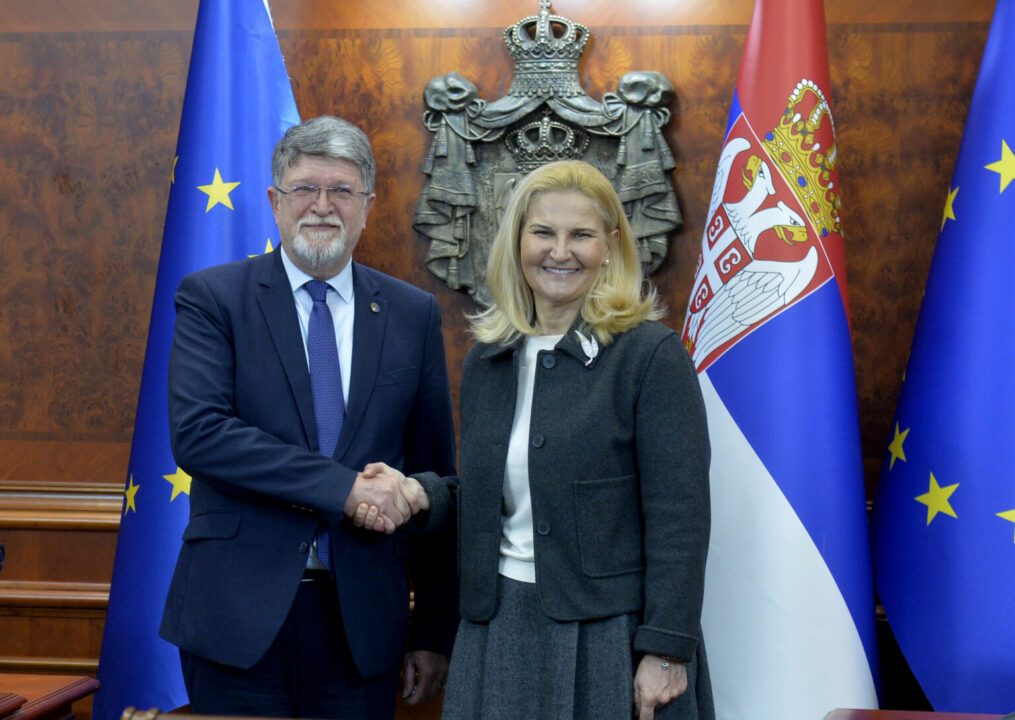
Belgrade should demonstrate its clear EU orientation
N1
European Parliament rapporteur for Serbia, Tonino Picula, urged Serbia to demonstrate a clear strategic commitment to the EU and communicate objectively about it. Meeting Minister Tanja Miscevic in Belgrade, Picula highlighted persistent issues in rule of law, media freedom, corruption and public administration. He condemned false claims linking the EU to Serbia’s student protests and affirmed the EP’s support for Serbia’s democratic progress. Miscevic reaffirmed Serbia’s commitment to EU accession, aiming for full alignment with EU standards by 2026 through reforms and the Growth Plan.
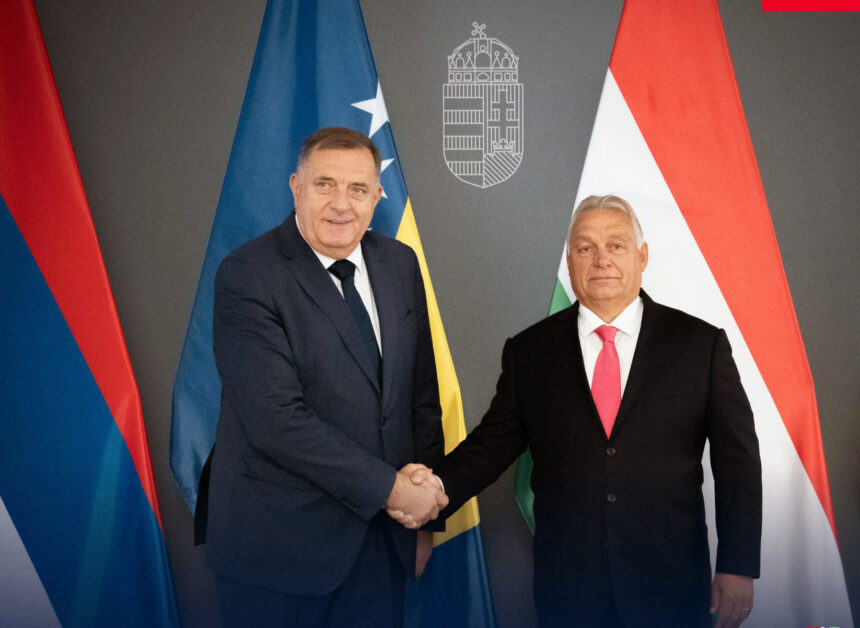
Hungarian special police deployed in Republika Srpska
Sarajevo Times
Hungarian Counter-Terrorism Centre officers conducted joint exercises with the Republic of Srpska’s Special Anti-Terrorist Unit in Zaluzani, focussing on medical training, close-quarter combat, police dog handling and mechanised tactical responses. The drills, which sparked strong controversies in Bosnia and Herzegovina, aimed to enhance cooperation in countering terrorism, Bosnian Serb authorities claimed. A Memorandum of Understanding was also signed in Banja Luka to strengthen police cooperation, covering terrorism prevention, information exchange, technical collaboration and joint training initiatives with Budapest.
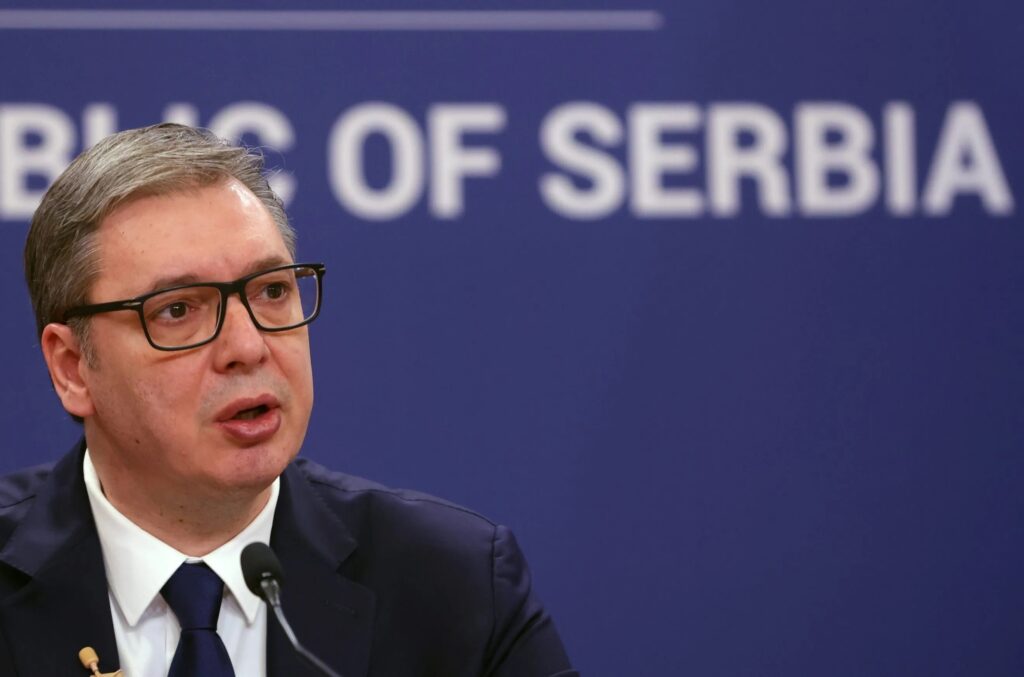
Vucic apologises to Moscow for Serbian vote on Ukraine’s resolution
Politico
Serbian President Aleksandar Vucic apologised afte Serbia voted for a UN resolution calling for a just and lasting peace in Ukraine. He admitted the vote was a mistake and took full responsibility, citing exhaustion. The resolution, backed by European nations, was adopted despite opposition from Russia and the USA. Serbia was among 93 supporters, while 18 opposed and 65 abstained. Vucic stated Serbia should have abstained, as Belgrade did with a similar US-backed resolution, also approved by the General Assembly.
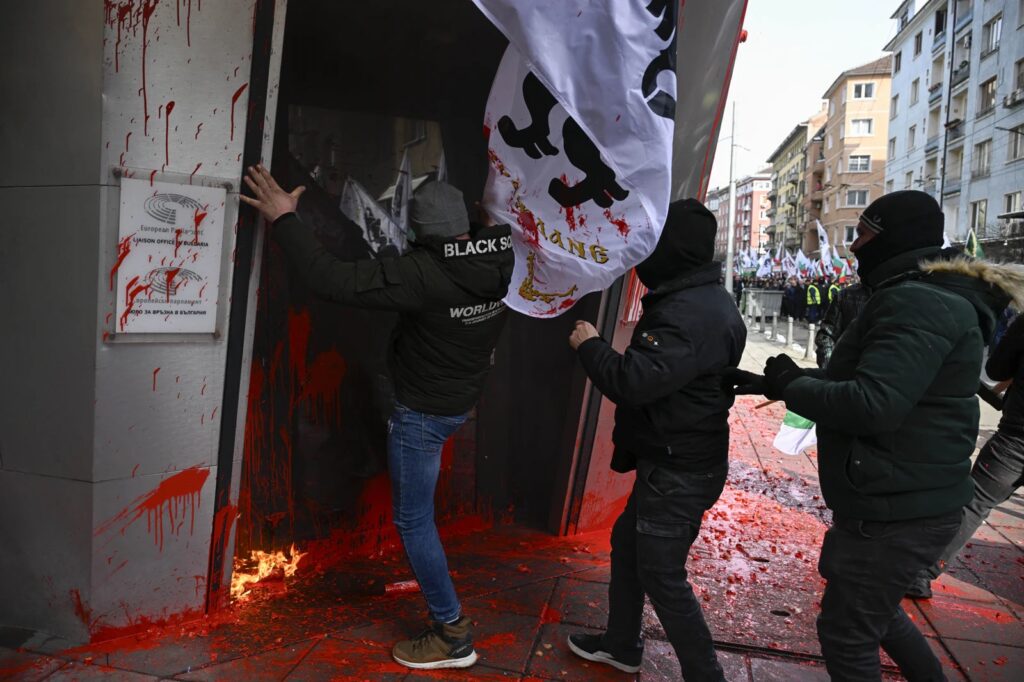
Pro-Russian, anti-Euro demonstrators storm EU office in Bulgaria
Belga
Far-right opponents of Bulgaria’s Euro adoption, mostly supporters of an anti-EU and pro-Russian party, attacked the EU office in Sofia with Molotov cocktails during a protest organised by the Vazrazhdane party. Demonstrators attempted to storm the building, briefly setting the entrance on fire, smashing windows and spraying red paint. Six people were arrested, and ten police officers sustained minor injuries. Effigies of EU officials were burnt. European Commission President Ursula von der Leyen condemned the violence, stressing that peaceful protest is a fundamental right, but vandalism is unacceptable.
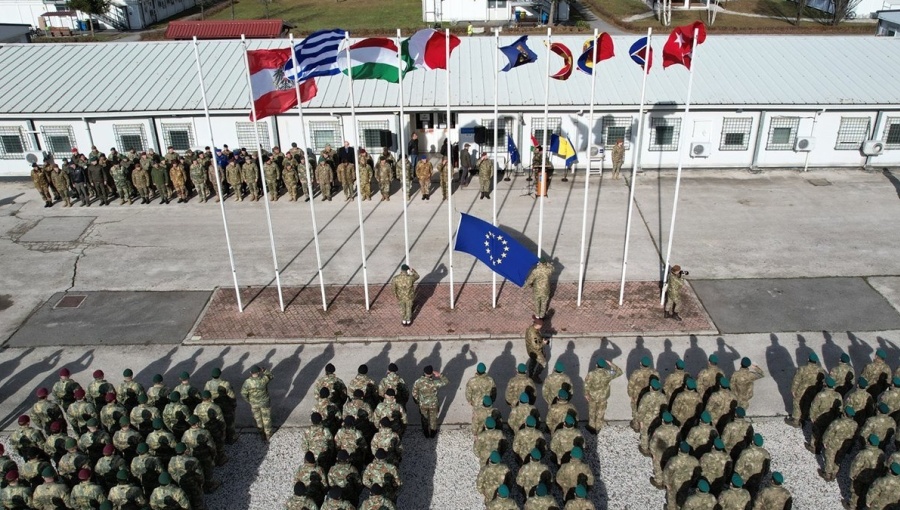
EUFOR and NATO ready to prevent destabilization in Bosnia and Herzegovina
BNE Intellinews
NATO and the EUFOR Althea peacekeeping mission are prepared to prevent destabilisation in Bosnia and Herzegovina if the Republika Srpska leadership takes radical steps following the conviction of its president, Milorad Dodik. KFOR has specific support plans to reinforce EIFOR in case of tensions. State-level MP Ramiz Salkic warned that Republika Srpska and Serbia might seek to escalate tensions and have the means to do so. Bosnia consists of two autonomous entities, the Muslim-Croat Federation and Republika Srpska.
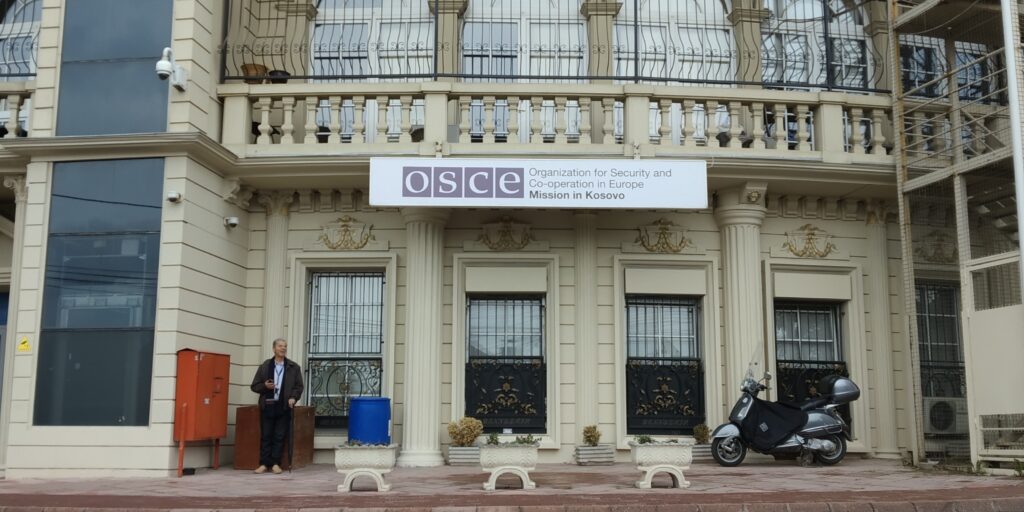
OSCE condemns closures of Serbian centres for social work in Kosovo
Kossev
Kosovo Police closed social work centres controlled by Belgrade in northern Mitrovica, Zvecan, Zubin Potok and Leposavic in February, mirroring previous actions against Serbian institutions in the North and in Serbian enclaves in Kosovo. The OSCE warned that the closures would negatively impact access to essential services for non-majority communities, disproportionately affecting vulnerable groups. Following similar concerns from the US embassy in Pristina, the OSCE stressed that such issues should be resolved through EU-mediated dialogue rather than unilateral actions.
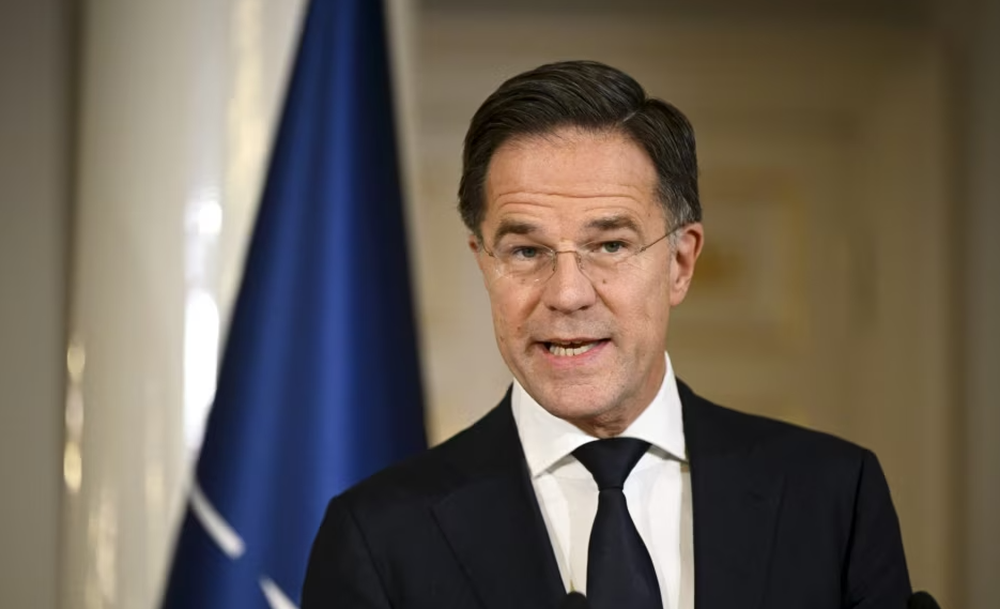
Stability in Balkans is essential, NATO SecGen said
A2-CNN
NATO Secretary General Mark Rutte stressed that stability in Kosovo, Bosnia and Herzegovina, and Serbia is in everyone’s interest and saw no reason for a dramatic shift in US commitment to NATO. Speaking in Bratislava, he addressed concerns about a potential US military withdrawal from Kosovo, stating that the American administration remains committed to NATO and its current obligations. While acknowledging that policy adjustments can occur, he emphasised the need to keep the Western Balkans in focus to maintain regional stability.
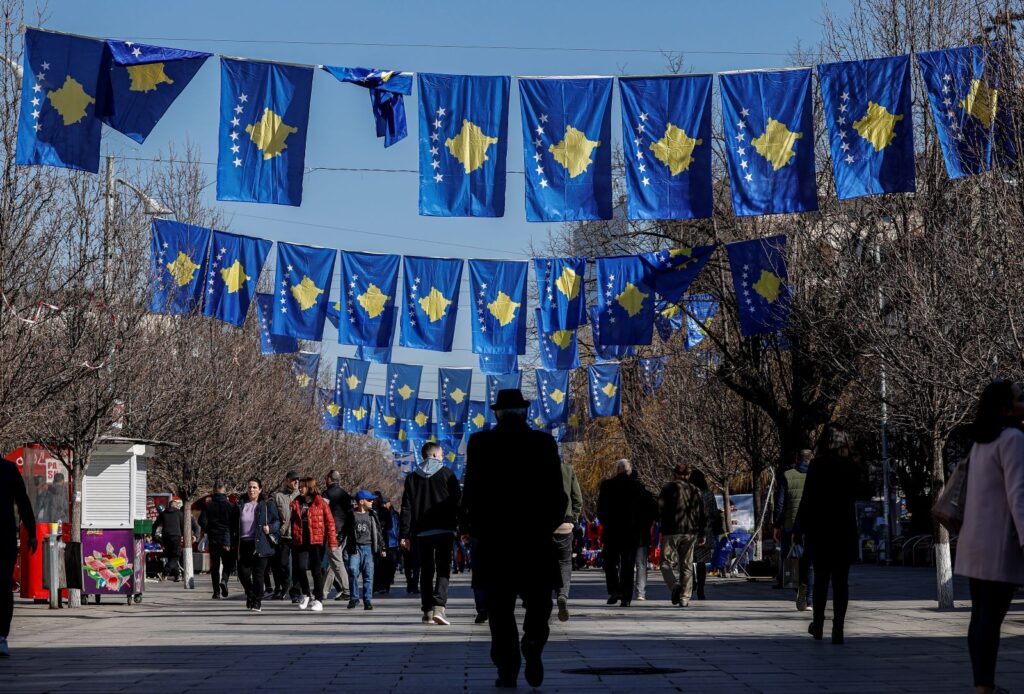
European rapporteur urges removal of sanctions against Kosovo
Pristina Insight
The European Parliament’s Rapporteur for Kosovo, Riho Terras, called for the immediate lifting of EU sanctions imposed on Kosovo in June 2023 due to tensions in the north. Terras argued the measures were no longer justified. The sanctions included freezing EU funds and suspending high-level meetings between Brussels and Pristina. The report also supported Kosovo’s EU membership, urged remaining countries in the EU to recognise its independence, and backed its bids for the Council of Europe and NATO’s Partnership for Peace program.
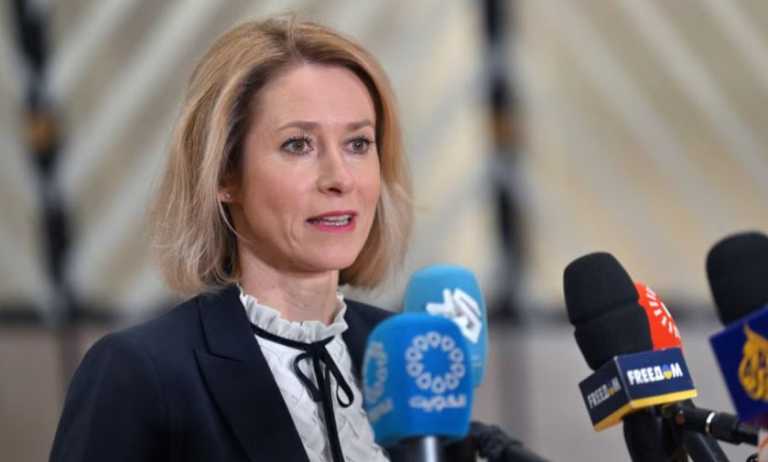
Full normalization only path to EU integration for Kosovo and Serbia
Euronews
EU chief diplomat, the new High Representative Kaja Kallas, stated that full normalization of relations between Kosovo and Serbia is the only way for both countries to join the European Union one day. She also welcomed Peter Sorensen’s appointment as the EU’s special envoy for the Kosovo-Serbia dialogue, replacing Miroslav Lajcak. Sorensen, who started his mandate in February, will focus solely on the dialogue between Kosovo and Serbia. The dialogue, initiated in 2011 and currently completely stalled, aims at full normalization, with Kosovo seeking mutual recognition and Serbia looking for a compromise.

Pro-EU Romanian President resigns just before impeachment
BBC
Romania’s President Klaus Iohannis resigned a day before an impeachment vote following the annulment of the country’s presidential election. The vote was triggered by his decision to remain in office until a new election in May, to be held after Romania’s top court controversially cancelled the election due to allegations of Russian interference. Despite citing national security concerns, opposition lawmakers claimed his extended term violated the constitution, which only allows such an extension in cases of war or catastrophe.
The Insight Angle

Srdjan Cvijic
Srdjan Cvijic is the President of the International Advisory Committee at the Belgrade Centre for Security Policy (BCSP), one of the leading think tanks in the Balkans. Before joining BCSP, he was a Senior Policy Officer at the Open Society Foundations’ Europe and Eurasia Program. A former high-ranking Serbian diplomat, Cvijic has worked with the Stability Pact for South Eastern Europe, the European Policy Centre in Brussels, and the NATO Parliamentary Assembly. He is also a member of the Balkans in Europe Policy Advisory Group and a Fellow of the Europe’s Futures Program at the Institute for Human Sciences in Vienna. Cvijic holds a PhD from the European University Institute in Florence and he is a Senior fellow at ISPI.
For more than three months, Serbia has been shaken by the largest protests the country has seen in years. Primarily led by students, the demonstrations appear to be gaining increasing support from broader segments of the population and the workforce, especially teachers and professors. Are you surprised by the duration and strength of the protests? And beyond the official demands of students and educators, what do you see as the main underlying reasons behind these demonstrations?
Indeed, these are the largest demonstrations Serbia has seen in its contemporary history. Definitely the largest since the overthrow of Slobodan Milosevic and his authoritarian rule back in 2000.
I am not at all surprised by them. The regime of Aleksandar Vucic has progressively captured the state and all its independent institutions during 12 years of his rule. The courts, prosecution, are all under control of the ruling party. Serbia doesn’t have free media, nor free elections. In such a situation, the only way to express dissent, ask for transparency, justice and accountability from the ruling class, is to go out in the street and claim it there. The main reason is that citizens are sick and tired of the corrupt class ruling Serbia for the last decade.
This is almost a historical constant for Serbia. Serbs have shown great tolerance towards authoritarian rulers, until they don’t anymore. And when they don’t, they don’t.
The EU and its member states are generally trying to not engage with the situation in Serbia, and they do not seem particularly supportive of the demonstrators’ cause. Do you agree with this assessment? If so, why do you think that is the case?
For the moment, we have seen largely silence from the EU. The current geopolitical storm gathering over Europe after the victory of Donald Trump in US elections doesn’t help. Europe has other fish to fry, but there is also a feeling that patience towards the authoritarian rule of Aleksandar Vucic is running out.
Vucic has suggested that the only two options currently on the table are forming a new government or holding early elections. What possible paths could lead Serbia out of the current crisis?
None of these two scenarios will end the protests. As concluded by the European Parliament and the OSCE/ODIHR mission Serbian elections in December 2023 haven’t been neither free nor fair. No opposition party would decide to take part in them. To do so would be tantamount to a political suicide. Appointing yet another figurehead prime minister or government would neither end the protests. It would be a political non-event.
The only solution is the formation of a transitional government that would have two tasks only, free the media in the country, implement the recommendations of the ODIHR mission on the elections, revise the electoral lists, and oversee the holding of free and fair elections in the country after this job is done.
Meanwhile, in Kosovo, Prime Minister Kurti has won the elections again, though without securing the overwhelming majority he achieved five years ago. With Vucic facing the most challenging period of his tenure and Kurti struggling to form a new government, could we see the emergence of new leadership in both Belgrade and Pristina?
Yes, indeed, this is one scenario, although there are also fears that instability in Kosovo may help both Vucic and Kurti defuse the internal political pressure on their governments.
Finally, do you see any risk of violence or serious unrest in the region, particularly in Serbia?
I am concerned that a cornered authoritarian regime in Belgrade, together with their allies in Moscow, may see instability in the region as being in their interest. For many years, the regime of Aleksandar Vucic has been tolerated by Europe because of its apparent stabilising role in the region. It is for this reason that Vucic’s strategy was, as the French say, one of a pyromaniac firefighter: spark a conflict in order to be able to resolve it. Never has his power been more threatened than today. In such a desperate situation, its propensity to destabilise the region is greater than ever.
The Key Story
Strategic trends
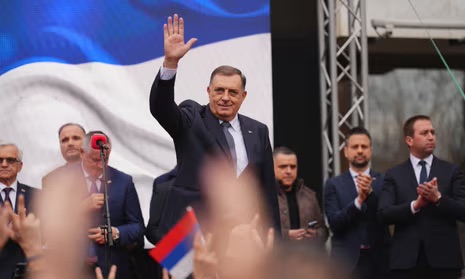
Dodik sentenced for ‘disobedience’, Bosnia and Herzegovina towards a period of serious destabilization
In a dramatic development that could push Bosnia and Herzegovina (BiH) into the most serious crisis in its recent history, the top-level Bosnian tribunal, the Court of Bosnia and Herzegovina (Sud BiH) has sentenced Bosnian Serb leader Milorad Dodik to one year in prison and barred him from holding public office for five years at the end of February.
Dodik, the leader of Bosnia’s Serb Republic (Republika Srpska, RS), a nationalist and pro-Russian politician with a pronounced separatist stance, was indicted in 2023 for signing laws that nullified rulings by the Constitutional Court and decisions of the international peace envoy Christian Schmidt, whose role was established in 1995 to monitor the application of the Dayton peace agreement and to prevent the Balkan nation from sliding back into war.
The High Representative has the authority to impose or annul laws and dismiss officials, including judges and political leaders, but his powers aren’t anymore recognised by the Bosnian Serb political leadership.
One law suspended rulings by Bosnia’s Constitutional Court, while the other halted the publication of the peace envoy’s decrees and laws in the Serb Republic’s official gazette. The RS Gazette’s director, Milos Lukic, was also charged together with Dodik.
The Bosnian state court, after a long and tense trial, sentenced Milorad Dodik to one year in prison on 26 February. The first-instance verdict also imposed a six-year ban on him serving as president of Republika Srpska, and in general to participate in the political life in the Balkan country. His co-accused, Milos Lukic, former acting director of Republika Srpska’s Official Gazette, was acquitted. The prosecution had sought a five-year prison sentence for Dodik and a ten-year ban from political life. The verdict is subject to appeal before becoming final.
Dodik and his legal team were absent from the courtroom during sentencing. Before the ruling, he had nonetheless already declared his intention to defy any conviction and warned of taking radical measures in response. He even raised again the prospect of Republika Srpska separating from Bosnia, further escalating tensions in the politically fragile country. Dodik, sanctioned by the United States and the United Kingdom for his separatist policies in the past, had also dismissed the case against him as a “purely political process”, suggesting he would be “ready to go all the way” if found guilty, without specifying his plans. He as well claimed he would not appeal the first-instance judgement, meaning that it should therefore go into force – without being recognized at least in Republika Srpska.
After being sentenced, Dodik appeared unfazed. In front of thousands of supporters, he dismissed concerns, saying there was no reason to worry despite being found guilty, a reaction that underscored his longstanding refusal to recognise the Court’s authority. Addressing the crowd in Banja Luka, Dodik declared also that Bosnia and Herzegovina no longer existed after the trial, vowing to push forward with his agenda as long as he had public backing.
Dodik also revealed that he had spoken by phone with Serbian President Aleksandar Vucic and Hungarian Prime Minister Viktor Orban, his closest allies together with Vladimir Putin. Dodik also invited Vucic to Banja Luka for discussions on the next steps. Meanwhile, Moscow voiced concern over the verdict, warning that it could have catastrophic consequences for Bosnia and Herzegovina and the wider Balkans.
In an immediate and worrying response to the verdict, the Bosnian Serb Parliament convened in an emergency session after the judgement. After several hours of debate, it approved a set of “resolutions” that could be seen as a direct challenge to the central national institutions.
The RS Assembly accused the Court of Bosnia and Herzegovina of carrying out a coup and dismantling the constitutional order of Bosnia and Herzegovina. Furthermore, the Assembly rejected all decisions made by Schmidt and declared all laws and decisions from bodies not defined by the BiH Constitution to be null and void, particularly those from the High Judicial and Prosecutorial Council, the Prosecutor’s Office of BiH, the Court of BiH, and the BiH Agency for Investigation and Protection.
The Assembly argued that the BiH Court’s decision, based on Schmidt’s decree, contradicted the BiH Constitution and amounted to the dismantling of the constitutional order. It called for the Republika Srpska Attorney’s Office to file criminal charges against prosecutors and judges involved in implementing the imposed decision for undermining the constitutional order.
The National Assembly also instructed the RS Government to prepare laws banning the operation of institutions not outlined in the BiH Constitution, particularly those of the BiH judicial system, in Republika Srpska.
Soon after, the High Representative Christian Schmidt criticised the leadership of Republika Srpska for attempting to destabilise the country. In a statement, Schmidt’s office called for an immediate halt to actions that threaten the Dayton Peace Agreement and Bosnia and Herzegovina’s constitutional and legal order.
The response of the Bosnian Serb leadership to the Dodik verdict could represent the most serious challenge to the unity of Bosnia and Herzegovina in recent decades. While it remains unclear how far Dodik is willing to go in defying the central institutions, it is crucial that the EU, Western powers, and NATO intensify their monitoring of Bosnia and Herzegovina to prevent an escalation that could prove detrimental for the fragile Balkan country.
Further News and Views
Kurti wins the elections but falls short of a majority
Sources: Associated Press, Euractiv, Al Jazeera, New Eastern Europe
Prime Minister Albin Kurti’s party, Vetevendosje (VV, left-wing nationalists), won the most seats in Kosovo’s parliamentary elections but fell short of a majority, securing just under 41% of the vote, down from over 50% in 2021. The right-wing Democratic Party of Kosovo (PDK) came second with 22%, followed by the Democratic League of Kosovo (LDK) with 17,5%. The Alliance for Kosovo’s Future party of garnered 7,44% of the votes. Turnout was around 40%.
With no party with a clear majority in the 120-seat parliament in Pristina, analysts warned of potential political deadlock and the possibility of another election.
All major parties current in the opposition, all of a centre-right orientation, ruled out a coalition with VV, while election expert Mazllum Baraliu noted that any government formed would likely be unstable. Kurti, who initially hinted he would sit in opposition if he lacked a majority, later declared that Vetevendosje will form a government “without any hesitation.” However, analysts predict VV would remain in charge only as a caretaker while other parties struggled to agree to form an alternative majority, leading to political stagnation.
Kosovo’s ethnic Serb party, the Serb List, claimed all 10 seats reserved for the Serb minority, positioning itself as a potential kingmaker despite its frequent parliamentary boycotts and tense relationship with Kosovo authorities, Kurti in particular.
No end in sight for the massive protests sweeping Serbia
Sources: The Guardian, New Lines Magazine, Associated Press, Bne Intellinews
Protests in Serbia, sparked by the collapse of a canopy at Novi Sad railway station that left 15 dead in November 2024, continued into February, causing hundreds of schools, high schools, and universities to come to a standstill. The Balkan country has also seen daily demonstrations for more than three months, including roadblocks, student-led strikes, and mass rallies.
In February, in particular, thousands gathered in Kragujevac on Serbia’s Statehood Day, demanding government accountability for the accident in Novi Sad, as well as a complete overhaul of the country’s leadership, an end to corruption, and greater democracy. Protesters, above all students, waved flags marked with bloody handprints, the symbol of the movement. The demonstration followed similar day-long protests held previously in Belgrade and Novi Sad.
On the same day, President Aleksandar Vucic addressed supporters in Sremska Mitrovica, claiming Serbia was under external attack aided by domestic forces manipulating students. Vucic even evoked an ‘orange revolution’ organised in Serbia by foreign and internal actors. He urged protesters to declare victory, arguing that their demands had been met. The government had already attempted concessions to defuse tensions, but students continue to push for greater transparency.
Vucic’s SNS party has ruled Serbia for over a decade, maintaining economic stability but facing accusations of corruption, election fraud, and democratic suppression. The protests reflect growing discontent. Despite PM Milos Vucevic’s resignation, tensions remain high, with fears of further escalation in March.
EU - NATO
NATO and Washington deny a possible ‘disengagement’ from Kosovo
Sources: BNE Intellinews, Euronews, Kosovo Online, Anadolu, Gazeta Tema
Reports in German media about a possible US military withdrawal from Kosovo have sparked controversy in the region. However, both NATO and Washington denied that US troops would leave the NATO-led mission in Kosovo (KFOR).
The speculation originated from the German daily Bild, which claimed that Italy is preparing for a potential US pullout as part of a broader US military withdrawal from Europe, to be arranged if Donald Trump and Vladimir Putin reach an agreement to end the war in Ukraine. Such a move could leave European allies alone in the Balkans, increasing pressure from Serbia.
However, NATO, the US, and Kosovo’s Defence Ministry dismissed the claims, reaffirming Washington’s commitment to European security. The US confirmed its intention to continues its presence in Europe and the importance of NATO’s deterrence and defence, while also urging allies to invest more in shared security.
ECONOMICS
Major economic loss also in CEE due to the war in Ukraine
Source: Erste Group
Three years after Russia’s invasion of Ukraine and with peace negotiations on the horizon, experts from Erste Bank analysed the war’s impact on Central and Eastern Europe. According to their findings, the region’s cumulative GDP loss is projected to reach 7,9 billion dollars by 2026, a relatively modest 0,2% decline compared to the staggering 120,2 billion loss in Ukraine, where GDP is expected to be 31% lower than it would have been without the war.
The conflict triggered an unprecedented inflation shock, with the CEE region still grappling with high inflation and interest rates. Additionally, Europe and the CEE region was also forced to swiftly diversify energy sources and adjust trade flows due to sanctions on Russia. The war also led to a massive influx of Ukrainian but also Russian refugees, reshaping demographics and labour markets.
Ending the war would bring economic benefits to the region and open investment opportunities in Ukraine, provided that strong guarantees are in place, Erste noted.

Stefano Giantin
Journalist based in the Balkans since 2005, he covers Central- and Eastern Europe for a wide range of media outlets, including the Italian national news agency ANSA, and the dailies La Stampa and Il Piccolo.

